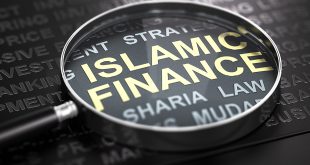Although the word ‘Islamic’ refers to beliefs specifically related to Muslims, it is a different case altogether with Islamic banking and finance.
It is a sophisticated banking and finance structure based on moral and social values, which is compatible with the modern day financing needs, and hence, is receiving overwhelming response from Muslims and non-Muslims alike.
|
Sometime ago, the Pope’s official newsletter, L’Osservatore Romano, published an article praising the ethical concepts of Islamic banking and finance and encouraging Western banks to adopt the rules of Islamic banking and finance to restore confidence amongst their clients during the economic crisis.
Not only the Pope but several leading educational institutions have also advocated Islamic banking and finance by introducing courses on the subject. Harvard had set up its Islamic Finance Project way back in 1994-95, followed by several other premier educational institutions worldwide. Apart from this, several governments are taking efforts to benefit from the multifold advantages of the Islamic banking and finance system. Countries like the United Kingdom, Luxembourg, North Ireland, Germany, Bermuda, France, Malaysia, Indonesia, Maldives, Turkey, Singapore, the entire Middle East, Japan and Australia are now well-known names in this regard.
Countries like Luxembourg, Bahrain, and Malaysia have developed a robust infrastructure of Islamic banking and finance system, and it is pertinent to note that Luxembourg last year reported the world’s highest per capita income, whereas Malaysia is fast on its way to becoming a developed nation. It is noteworthy that while Luxembourg has a very small population of Muslims, Malaysia, a Muslim-dominated country, has more than 40 percent non-Muslim account holders in Islamic banks.
It is due to its economic benefits that all these countries, irrespective of the size of their Muslim populations, are trying out different ways to become leading centres of Islamic banking and finance. Likewise, there has been a surge in the number of non-Muslim professionals providing Islamic banking and financial services throughout the world, undoubtedly stressing that the importance and advantages of Islamic banking and finance stretch far beyond its name.
The recent past has shown that while the world faced severe economic crisis, Islamic banks continued to grow unabated, making the world take note of this lesser known field. Islamic banking and finance has now become a confident part of the world economy with more than 75 countries joining this industry, which is growing at about 20 percent to 30 percent annually.
India, which happens to be home to approximately 150 million Muslims, is seen as the largest untapped market for Islamic banking and finance.
There have been growing demands from various sections of the Indian society, especially the economists and businessmen for the introduction of Islamic banking services in India for the past few years, and some efforts have made in this regard.
However, there seems to be a lack of awareness among the masses as well as policymakers in terms of its application and benefits.
One positive step in this direction came from the Kerala government, which participated in an Islamic finance venture in the state, inviting much needed investment. With the green signal to the project in Kerala, it quickly received investment offers worth Rs. 100 billion from Oman alone to invest in vital developmental projects including roads, bridges, flyovers, power, water supply and transport, industrial and information technology, tourism, ports, airports, railways and mass transportation and inland waterways across the state.
It is a good development towards opening the doors for much-needed investment in India, and promoting an equitable banking structure that will benefit all, irrespective of the religious beliefs of the customers.
India is among the fastest growing economies and shall be a leading economy of the world by 2020; however, to achieve this, it is high time India took some proactive steps in this direction, including policymaking and introducing Islamic banking and finance courses in various institutions to educate the masses besides preparing quality professionals to cater to the growing demand.
As per reports, India needs about $500 billion to invest in projects crucial for building its vital infrastructure.
The introduction of Islamic banking can easily provide this much-needed money, especially from the oil rich Gulf nations with billions of petrol dollars looking for new markets. The importance of Islamic banking and finance is increasing and its integration in the mainstream economy is too big to avoid.
It is high time Indian policymakers provided for integration of Islamic banking and finance in the system. If India’s infrastructure develops, every Indian will benefit, irrespective of one’s religious beliefs.
The writer is an advocate and an expert in Islamic banking and finance laws.
Post Disclaimer | Support Us
Support Us
The sailanmuslim.com web site entirely supported by individual donors and well wishers. If you regularly visit this site and wish to show your appreciation, or if you wish to see further development of sailanmuslim.com, please donate us
IMPORTANT : All content hosted on sailanmuslim.com is solely for non-commercial purposes and with the permission of original copyright holders. Any other use of the hosted content, such as for financial gain, requires express approval from the copyright owners.
 Sri lanka Muslims Web Portal Sri Lanka Muslims News Center
Sri lanka Muslims Web Portal Sri Lanka Muslims News Center

 Donate
Donate


